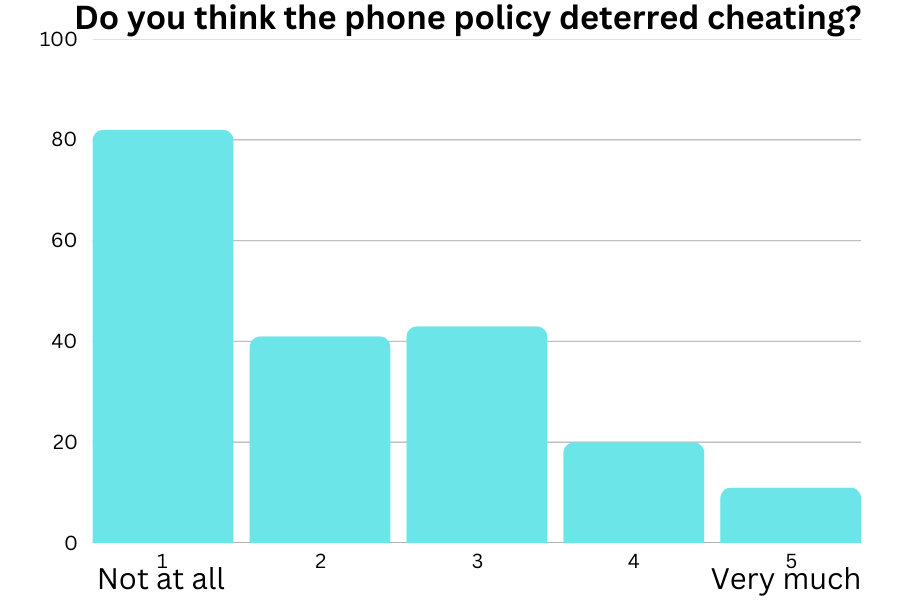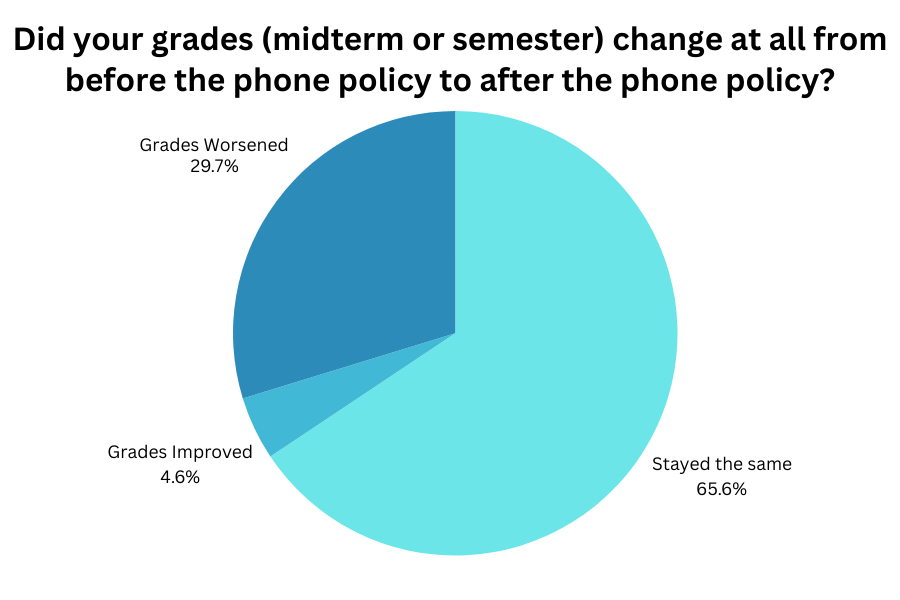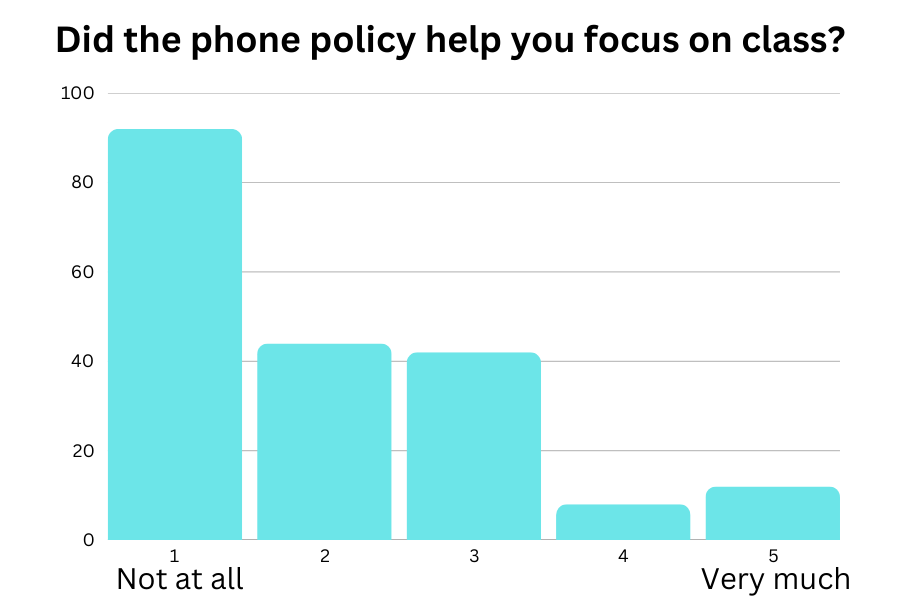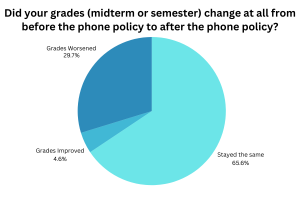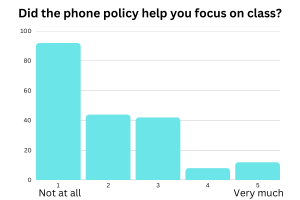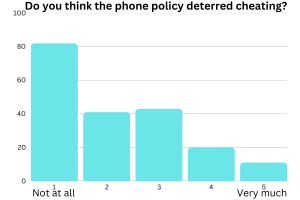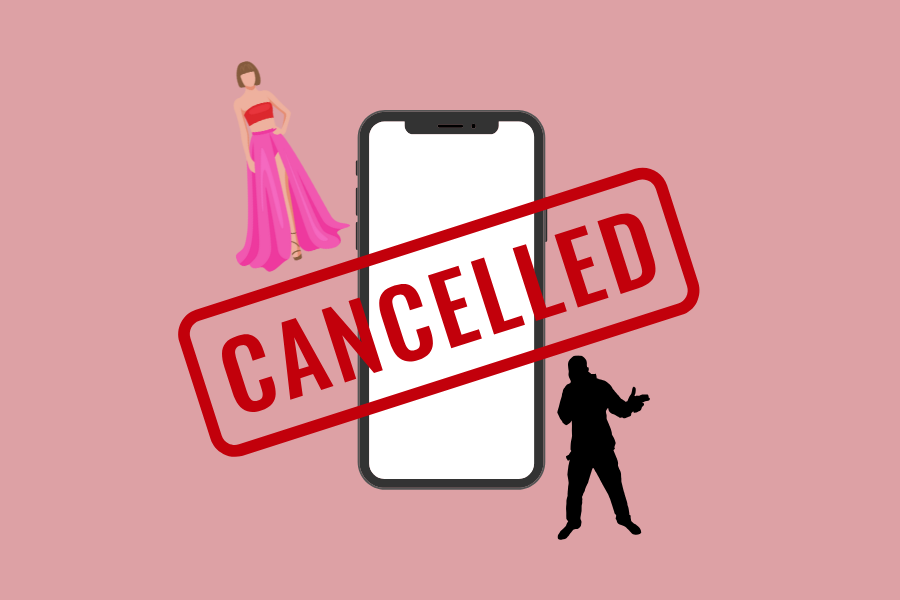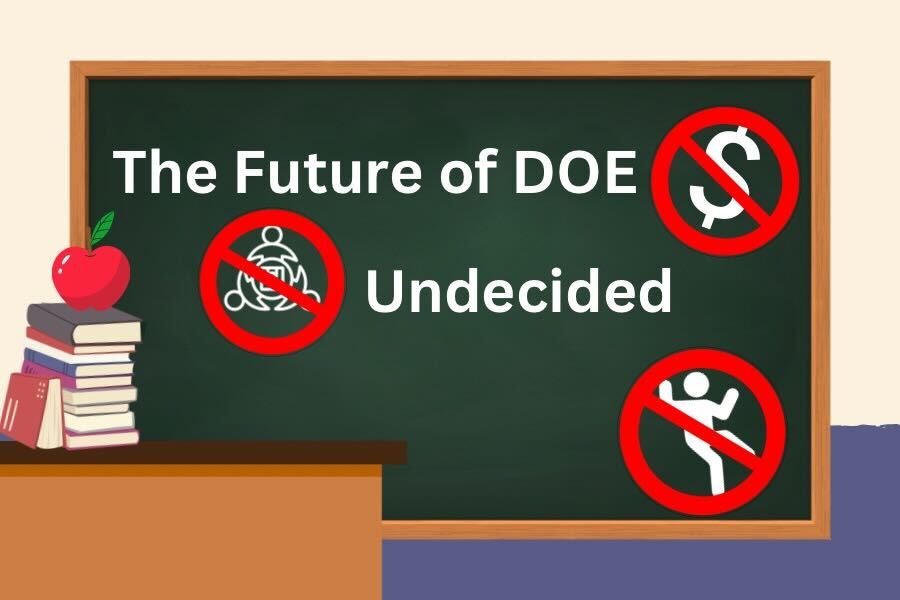As students file into a classroom, they unzip their backpack and place their phones in a designated “phone caddy” area where it remains until the last few minutes of the block, something that would seem strange to most students just two semesters ago. This new and seemingly strange action was mandated by the campus-wide no phone policy, implemented by the Westwood administration staff at the start of the current school year. The intent was to ensure that students would focus on classroom teaching rather than their phones. Administrators hoped that the ban on mobile devices would decrease cheating and distraction, which would improve the overall grades of students.
Although the implementation of the phone policy has succeeded, with many teachers adamantly enforcing the ban on phones, the phone policy has failed to increase grades, focus and academic honesty among students. To gauge how the phone policy has affected students, Westwood Student Press conducted a survey of the student body. Out of the 200 responses received in two days, overwhelmingly, students have seen that the ban on phones has failed to achieve its intended purpose. The phone policy has no impact on focus during class, and only shifts the focus from phones to other objects around the room. It has failed to accomplish its intended goal: to encourage students to pay attention to their teachers.
“There was no difference,” an anonymous interviewee said. “The people who used to be on their phones were still not paying attention. And the people who could actually benefit from them are suffering.”
Not only has the phone policy failed to stop students from being distracted in class, it has also taken away a crucial academic tool. Phones are a crucial tool to improve their study efficiency. Many use it to track daily tasks, listen to music, and take pictures of important pieces of information that teachers write.
“Not having my phone didn’t help my grades, and I actually think it may have hurt a little,” Ishira Limaye ’25 said. “While my grades themselves didn’t go down, it was really annoying to not be able to take a picture of notes on the board or assignments and due dates. I used my phone a lot last year to take photos when I didn’t have time to write, and then I’d go home and be able to look over them/write down the new info. Not being able to do that was pretty frustrating.”
In addition to feeling frustrated that an accessible tool has been taken away, the phone policy also causes inconvenience, as it cuts off communication from parents and takes away their music that allows them to focus. The phone policy has multiplied the worries on students minds and thus hinders students from fully focusing in class.
The phone policy has achieved the opposite of its original intent. Students are more distracted with the phone policy due to a restricted access of music and anxiety towards limited communication with parents.
The phone policy has also failed to address the underlying problem of distraction: lack of motivation. It causes students to be demotivated about completing homework or classwork. After being starved from communication and interaction with technology students have found that they end up spending more time on their phones at home, making the ban on phones counterproductive.
The phone policy has created a tradeoff. Instead of being distracted during school, students have spent more time scrolling at home. This is a net loss in the total productive study hours for students and overall made procrastination habits worse.
Due to the phone policy’s inability to improve the grades and focus of students, hindering students to use an important tool, and causing worse learning habits at home, the phone policy should be reformed.
“I believe people can’t grow if they don’t have a teacher/role model to help them,” Ferhad Hakimi ‘26 said. “A boring classroom where it’s just work and books and having to put your phone up isn’t [an] interactive fun or learning environment, that’s just a boring and robotic mindset to put inside [a] student’s mind.”
Schools should reform the phone policy and provide incentive for students to actively be engaged in class. School administrators should reform the system and create a more engaging learning environment, motivating students to not be on their phone. One possible solution is providing extra credit to those that pay attention during class. Students could also be rewarded with physical incentives like snacks or prizes to those that get practice questions correct. Teachers could also ensure that their lessons are more engaging by providing more in class practices with prize incentives.
Administrators need to improve the education system and create a more engaging learning environment. This would motivate students to spend more time paying attention and finishing class practices rather than paying attention to their phone.



